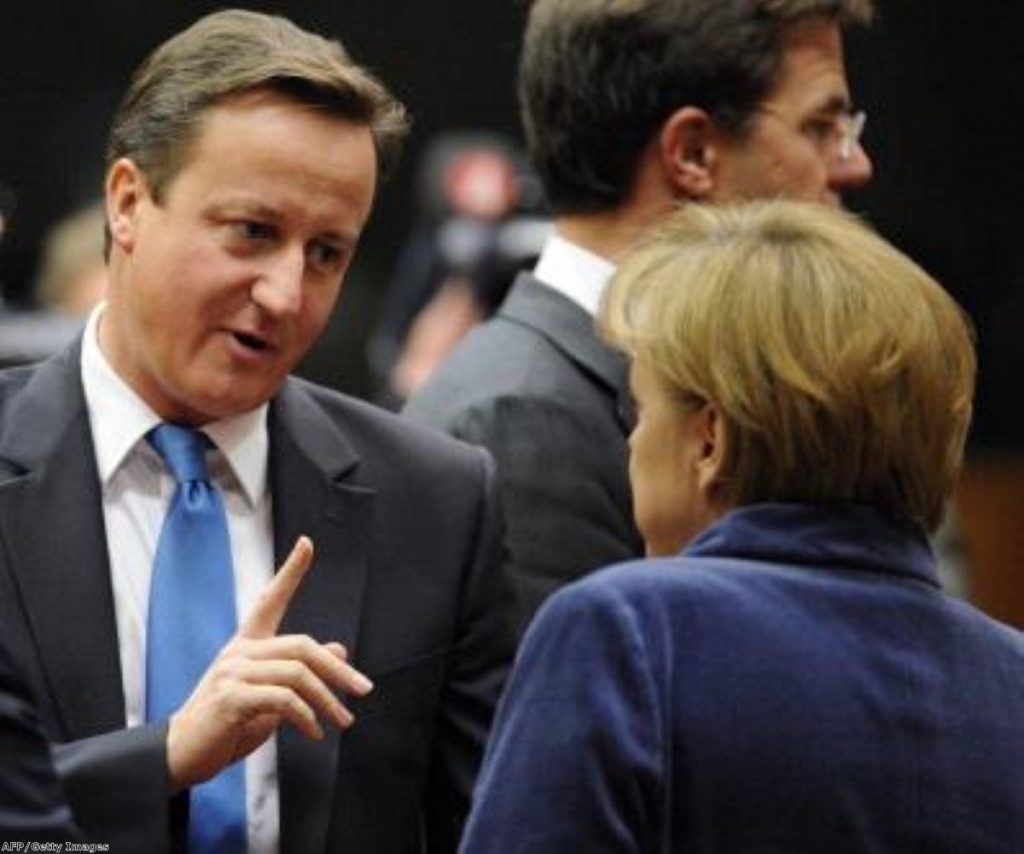The week in politics: Did that really just happen?
No one expected this week to turn out the way it has.
The difference between Monday and Friday is staggering. Our lead story at the start of the week addressed the usual suspicions that David Cameron would accept Angela Merkel and Nicolas Sarkozy's demands, following the mould set by prime ministers dealing with Europe for the last decade-and-a-half, before doing his utmost to wriggle out of giving the British people a referendum. No 10 was making clear that there was no need to ask the general public's opinion, because the eurozone proposals didn't involve a transfer of powers away from London to Brussels.
The mood among Tory eurosceptics was the same as it has been for years and years: a sort of grumpy, petulant, slow-simmering outrage, and they used Wednesday's prime minister's questions to make their feelings felt. Nearly every Conservative backbencher stood up to demand that Cameron take this "opportunity" to renegotiate Britain's involvement in Europe. The message was hammered home in one of the PM's most testing Commons sessions since he entered Downing Street. Yet even then there was no sign that Cameron would shift from his very predictable position.
Usually the biggest news story of the week is well and truly wrapped up by Thursday evening. Not this week. At that time Cameron was just arriving in Brussels for exhausting talks going well into the wee small hours of Friday morning. Neither 'Merkozy' nor Cameron thought the other side would stick to their negotiating position; when neither side budged they found themselves facing an entirely unexpected outcome. To the delight of eurosceptics, Cameron was the only one of the EU's 27 leaders to reject outright the proposed fiscal integration measures.


What a difference from Monday. The usual compromises of European politics had been thrown out of the window. Even Margaret Thatcher, who had a thing or two to say against Europe, never went so far as to deploy the British veto. From nowhere – given the fundamental erosion of sovereignty the treaty would have imposed – it has become much easier to be a eurosceptic. We're left watching figures like Tory MEP Dan Hannan and veteran eurosceptic Bill Cash praising the PM's approach – and agreeing with Nick Clegg, to boot. You have to shake yourself. This really is happening.
Was there any other news this week? It doesn't feel like it, does it? So there seems very little point in flagging up the Commons' unanimous vote on extradition on Monday, or an expose of lobbying firm Bell Pottinger's "dark arts", or even Tory backbencher rather unwisely mentioning Auschwitz during an evidence session on privacy.
This was also the week when we assessed the politics of Christmas in our weekly podcast and discovered what the prime minister's favourite choice of TV viewing is. He'll need something to take his mind of the last 48 hours, that's for sure.
At least Cameron can expect a more positive welcome when he appears before the Commons on Monday to update parliament on the summit. That's set to be the highlight of next week in Westminster, before the final PMQs of 2011 on Wednesday – as always, join us for our live blog. See you then.
— Alex Stevenson Follow @alex__stevenson












